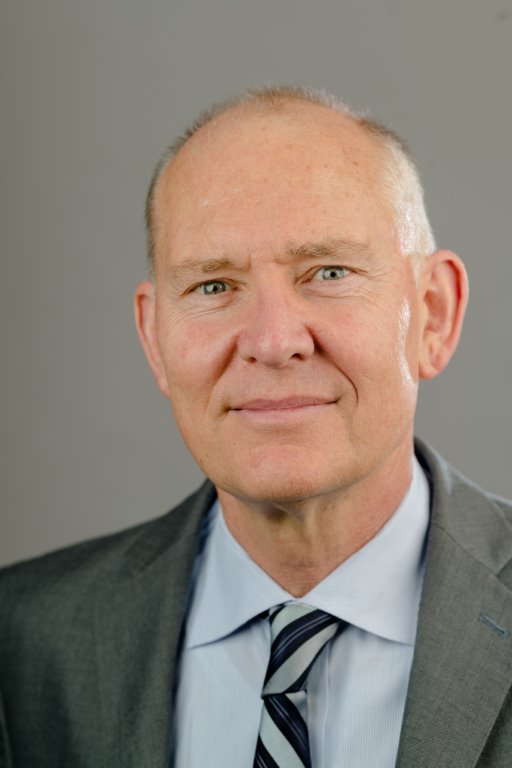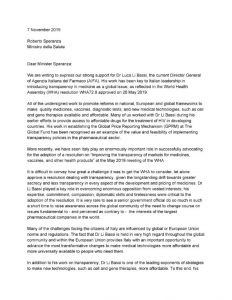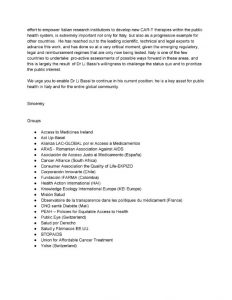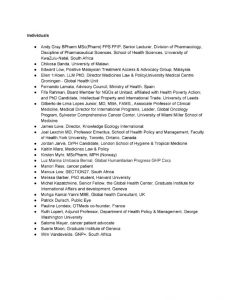Regional institutions mandated with the overall trusteeship of granting patents like African Region Intellectual Property Organization (ARIPO) responsible for the filing, administering, examining and granting of patents for 18 Contracting States of the Harare Protocol (ARIPO’s legal instrument on patents), and Organization Africaine de la Propriété Intellectuelle (OAPI) responsible for examining and granting of patents in the 16 Member States in West and Central Africa signatory to the Bangui Agreement, continue to apply insensitive practice of granting these patents which is parallel to WTO TRIPS flexibilities and pharmaceutical exemptions given to the Least Developed Countries (LDC) during this pharmaceutical transition period. Patents remain an emerging sharp sword to fragile and ever hemorrhaging health systems. This is looped in the weak implementation of TRIPS flexibilities in member state national patent laws, infamous practice of processing and granting pharmaceutical patents in LDCs by region institutions like ARIPO which has a direct implication on the member states’ access to affordable medicines, and development of a vigorous generic industry that can check the monopolies in the pharmaceutical sector to enhance availability of cheaper drugs

By Michael Ssemakula
People’s Health Movement
Patents in Pharmaceuticals: The Emerging Sharp Sword to the Fragile Health Systems in the 21st Century
The Work of Contemporary Struggles in Countering this Growing Global Threat to Access to Affordable Medicines
Quarter of the global populace faces access deficiencies to the most basic essential medicines. For the destitute and impoverished sick in the south constituency, the cost of drugs can determine whether they will be treated [1] or suffer with their ailment in excruciating pain. Numerous individuals who cannot afford the required treatment quite often resort to self-medication using traditional herbs and alternative medicines or a resignation to the natural hypothetical amazing ability of the human body to heal itself. In many instances this has left patients with severe and chronic complications as a result of a failure to treat the medical conditions early. Patents drive medicines’ and health technologies’ prices up, through subsequent monopoly statuses which permit the pharmaceutical companies to charge whatever price the demand side will shoulder. The World Trade Organization Trade-Related Aspects of Intellectual Property Rights (TRIPS) Agreement, which provides twenty years’ patent protection for pharmaceuticals [2], also comprises safeguards such as compulsory licensing, to ensure that countries can prevail over the patents whenever they are a barrier to access to medicines and in the event that there is violation of patents by the patent holders.
There is an intense lobbying and pushing from the transnational pharmaceutical industry and some Western governments to protect their pharma products and technologies through patents. Patents are often taken as a conduit to provide guaranteed heavy revenue and commercial exclusivity to private companies to enhance the ‘purported’ innovation, investment in research and continuance of scientific progress [3]. But what about the innovations that are publically funded in this contemporary intellectual property regime but their outcomes are exorbitantly priced to the citizenry across the continental divides?
In the overwhelming globalization of capitalism in diverse sectors, pharmaceutical industry inclusive, the use of safeguards in TRIPS remain worryingly unfulfilled. Experience from middle income countries like, Thailand, South Africa, Guatemala and Kenya shows the heavy burdens countries face in implementing the TRIPS Agreement [4] in a manner that protects public health, and emphasizes the vital role played by civil society in defending the right to access to effective and quality affordable medicines. Regional institutions mandated with the overall trusteeship of granting patents like African Region Intellectual Property Organization (ARIPO) responsible for the filing, administering, examining and granting of patents for 18 Contracting States of the Harare Protocol (ARIPO’s legal instrument on patents), and Organization Africaine de la Propriété Intellectuelle (OAPI) responsible for examining and granting of patents in the 16 Member States in West and Central Africa signatory to the Bangui Agreement [5], continue to apply insensitive practice of granting these patents which is parallel to WTO TRIPS flexibilities and pharmaceutical exemptions given to the Least Developed Countries (LDC) during this pharmaceutical transition period. Patents remain an emerging sharp sword to fragile and ever hemorrhaging health systems. This is looped in the weak implementation of TRIPS flexibilities in member state national patent laws, infamous practice of processing and granting pharmaceutical patents in LDCs by region institutions like ARIPO which has a direct implication on the member states’ access to affordable medicines, and development of a vigorous generic industry that can check the monopolies in the pharmaceutical sector to enhance availability of cheaper drugs.
Multiple challenges disproportionately burden the shoulders of the health systems in the global south especially in the sub-Saharan Africa which suffers from numerous communicable and non-communicable (NCD) disease burdens, health epidemics such as AIDS, anthrax, Bovine Spongiform Encephalopathy, drug-resistant tuberculosis and malaria, severe acute respiratory syndrome, avian and swine flus, Ebola, Zika virus, intensified by several other economic challenges through exposure to unfair and unhealthy multilateral trading system. Newer medicines have become more available, however not available to those who need them most due to their tall price tags such as bedaquiline and delamanid which are excessively priced but effective to cure the multidrug-resistant tuberculosis (MDR-TB).
The question remain, what can we do to address the inadequacies in the drug availability and accessibility globally expressly in the high priority countries? How can we build a strong solidarity beyond just lip singing of the “word” itself “solidarity?” Multiple global struggles and movements have come up with strategies to challenge the global apartheid in health accessibility and the hegemony of capitalism as a mechanism to counter the 21st century neoliberalism syndrome of globalization that has become a malignant neoplasm to the weak health systems.
Profitization in health through taking advantage of inelastic demand for medicines and other medical products is unequivocally a bridge giving the big Pharma super jump-pace to hold global health at ransom! Without doubt, profiting from health is perceived as an “eloquent thought” by big pharma, and also a common anti-humane practice of the corporations in the north pushing for aggressive mechanisms such as TRIPS-Plus to expand their investment multipliers through commercial exclusivity granted by patents to extremely exploit their benefits to the maximum.
More than ever, as anchors of health for all global health strategy, People’s Health Movement together with Third World Network have been so instrumental in safeguarding the full brim attention of global community to health through mobilization, strengthened health struggles, and solidarity against discriminatory health provision modalities. Their programs has encircled countering of ideological shifts and unfriendly profit driven postmodernism threats posed by the pharmaceutical corporations through a series annual trainings organized under their International People’s Health University (IPHU) program- which aims to contribute to ‘health for all’ by strengthening people’s health movements around the globe, providing space for learning, sharing and planning opportunities for people’s health activists, particularly from Third World countries. [6] The recent IPHU training in Cape Town- South Africa [7], was a global slumber breaking alarm to many global public health activists from over 12 countries across six continents about the shocking and deplorable inside of the pharmaceutical world and things big pharma don’t want us to know:- such as research and development costs, developing medicines and other health products is not as expensive as pharmaceutical industry say! The big Pharma overstates the R&D costs of new drugs to validate their exorbitant pricing [8], and quite often classify ‘opportunity costs’ and non-research based activities [9], For eras-of-time, the global big pharma has spread a deceiving tale justifying the ever-escalating prices of medicines, vaccines, diagnostics, other health products and technologies as something essential and unavoidable. We are paying double for our medicines, some corporations’ research is taxpayer-funded especially at government and university research laboratories, from which most new version of drugs and medicine technologies originate. They get tax havens and other related financial incentives to their research investments [10] and the end result is to shamelessly privatize and patent the final outcomes of the research. The IPHU did not only end on the prices of medicines set but also how patents are granted which some violate the provisions in TRIPS flexibilies through over and over extension of time for patents after making simple compound innovations which prolong monopolies. This is a notorious pharma ploy known as patent evergreening, which lengthen their monopoly and in longrun block entry of affordable generic medicines. There is an emerging evidence that shows the granting of patents over minor modifications of existing medicine products both in the North and South [11]. This tendency has also been noted with great concern by the development, humanitarian and health stakeholders who are worried about the patent abuses where negligible incremental modifications made by big pharma result in unjustified monopolies. Countries with feeble regulations are exploited to the last penny of their health expenditure, big Pharma bullies LDCs through exploiting the gaps and inadequacies in their legal and policy frameworks, and leverage on the influence they have to change global trade rules to benefit themselves.
With participants from diverse culture, profession and career backgrounds in health, policy, academic, humanitarian, and law, the training further disclosed the philosophy of political economy of health, structure of the pharmaceutical industry, medicines related policy and regulation, a profundity learning of the relationship between intellectual property and access to medicines, the requirements of the TRIPS Agreement; public health sensitive TRIPS flexibilities, patentability criteria, opposition systems, exemptions for least developed countries (LDC); TRIPS-plus provisions and implications for access to medicines; and current and new approaches to pharmaceutical research. [12]
References
[1] Patents, Access to Medicines and the Role of Non-Governmental Organizations, January 1, 2004 by Nathan Ford
[2] WTO AND THE TRIPS AGREEMENT, https://www.who.int/medicines/areas/policy/wto_trips/en/
[3] WHY PATENTS ARE NECESSARY FOR THE PHARMACEUTICAL INDUSTRY, https://servier.com/en/why-patents-are-necessary-for-the-pharmaceutical-industry/
[4] Patents, Access to Medicines and the Role of Non-Governmental Organizations, January 1, 2004 by Nathan Ford
[5] UNDP WHO Workshop on the Examination of Pharmaceutical Patents: Developing a Public Health Perspective, Cape Town, 30 – 31 October 2008
[6] International People’s Health University, https://phmovement.org/iphu/
[7] https://phmovement.org/course-announcement-the-struggle-for-health-and-access-to-affordable-medicines-cape-town-november-2019/
[8] 6 things big pharma doesn’t want you to know, Access Campaign: 20 Years, https://www.msfaccess.org/6-things-big-pharma-doesnt-want-you-know
[9] 6 things big pharma doesn’t want you to know, Access Campaign: 20 Years, https://www.msfaccess.org/6-things-big-pharma-doesnt-want-you-know
[10] 6 things big pharma doesn’t want you to know, Access Campaign: 20 Years, https://www.msfaccess.org/6-things-big-pharma-doesnt-want-you-know
[11] UNDP WHO Workshop on the Examination of Pharmaceutical Patents: Developing a Public Health Perspective, Cape Town, 30 – 31 October 2008
[12] https://phmovement.org/course-announcement-the-struggle-for-health-and-access-to-affordable-medicines-cape-town-november-2019/











